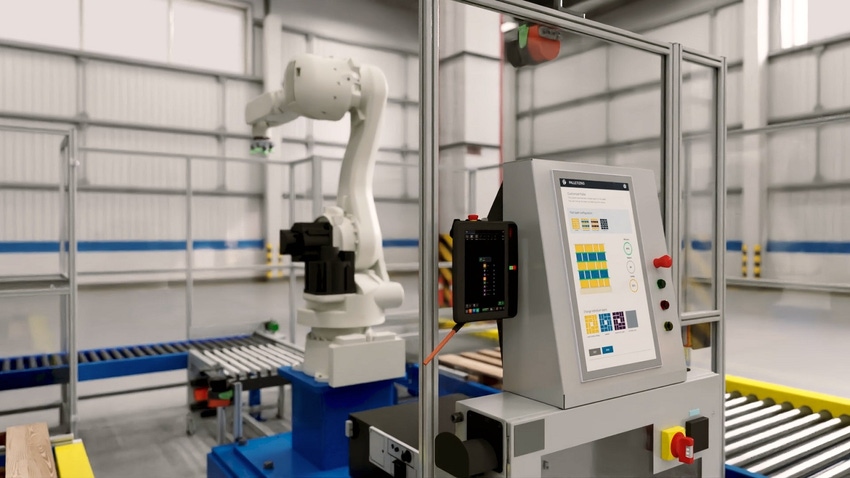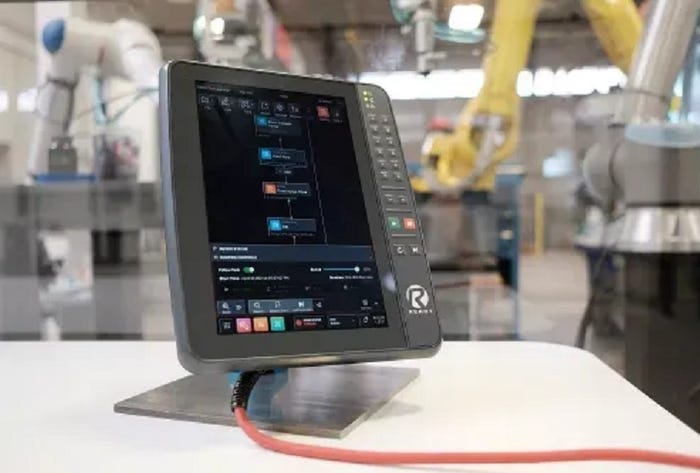READY and NVIDIA Makes Robotics Easier for Toyota
The two companies have created a robot simulator to make it safer and quicker to test robots for aluminum hot forging.
January 18, 2024

At a Glance
- Robotics OS
- Quick programming
- Safe robot applications
Here’s a convergence of trends – one old and one new. 1. Japan is the birthplace of industrial robotics, specifically in the automotive industry. 2. One major recent development in robotics is the effort to make robots easier and safer to program and deploy. In the past, each automotive robot was effectively assigned an expensive programmer. Now, the programming is pre-packed in the robot’s operating system. Or, the robot’s OS can be adopted from a robotics operating system company like READY Robotics.
In the spirit of history and cutting-edge advances, READY Robotics is collaborating with Toyota Motor Corp. and NVIDIA to take the next step in robot automation. The companies are developing a robotics simulator. Toyota will utilize READY ForgeOS in tandem with NVIDIA Isaac Sim, a robotics simulator developed on NVIDIA Omniverse, to build a simulated robotic programming environment for its aluminum hot forging production lines.
Safety and Speed Are the Goals
The collaboration aims to enhance safety and efficiency in Toyota's manufacturing processes. Typically, programming robotic systems for forging means that the metal parts remain hot during programming, presenting significant safety challenges. Integrating NVIDIA Isaac Sim – an extensible application developed on the Omniverse platform for simulating, developing, and testing robots – with ForgeOS, the programming can be developed in a simulated environment, eliminating the risks associated with hot parts.
READY Robotics created ForgeOS, a hardware-agnostic industrial OS for robots and automation. The operating system is a time-saving automation solution designed to overcome obstacles faced by manufacturers. ForgeOS simplifies the programming process, reducing the typical complexities of robotic systems and enabling an easy-to-use experience for robotic applications.

READY Robotics
READY has integrated ForgeOS with NVIDIA Isaac Sim to provide visual and physics-simulation fidelity, bringing realism to robotic simulations. With ForgeOS' intuitive programming and NVIDIA's realistic simulation environments, Toyota can quickly program and optimize complex robotic hot forging routines in simulations that capture the nuance of the complex hot forging processes.
Once proven in the simulated environment, these programs can be seamlessly transferred into the live production work cell, removing the necessity for programming in the physical installation itself, thereby reducing the concern for safety around hot parts. Since ForgeOS controls both the simulation and physical work cell, the program can be transferred and updated in seconds, minimizing downtime and making the work cell easier to maintain.
Taking the Collaboration Forward
Another benefit of this "sim-to-real" workflow is ForgeOS' ability to relay real-time production data from the cell on the factory floor back to the original NVIDIA Isaac Sim simulation. This forms a digital twin of the live cell, enabling visualizations of its current state and facilitating greater monitoring and oversight.
While improvements in the management of hot aluminum is a handy development, the greater significance of the collaboration will be demonstrated as it rolls out to other applications. The overall goal is to create simpler paths for the programming and deployment of robotic automation. This is designed to improve efficiency, usability, and safety. "Simulating industrial processes in high fidelity before their real-world deployment can greatly improve productivity and safety while reducing costs," said Deepu Talla, VP of embedded and edge computing at NVIDIA.
About the Author(s)
You May Also Like





